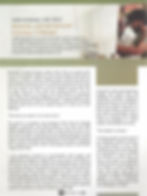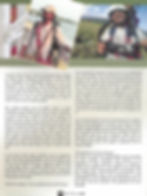Humanity and Self-directed Learning: A Dialogue
- Ashik Krishnan Kangaparambil
- Jul 18, 2019
- 4 min read
Updated: Aug 28, 2020
Humanity is going through a phase where there are powers that want it to be passive observers. The current global world order is rooted in violence; violence inflicted upon oneself and also the surrounding ecosystems. We are constantly being fed with the idea that the Sacred is elsewhere, and the pursuits for the same take us away from our own roots and natural systems. We are invariably advised to overcome our insecurities by consuming more. When the systems obligated to keep up the morale of the individual themselves starts to traumatize, a self-directed learning process turns out to be the natural choice to come out of the affliction.
"The times are urgent. Let us slow down."
The queries on purpose and meaning of life took me through multiple crossroads. One thing leading to the other and right things happening at the right point of time found its way to my stint with Travellers' University. The one hundred plus days of solo travel across India exploring Education and Sustainability opened paths to newer learnings and realizations. The journey compelled me to address my fears, which I had almost always conveniently walked away from.
I was primarily involved in conversations with people and organizations during the initial phase of my travel, attempting to understand the different realities and philosophies they operated in. I used to stay at each location for an average of three days and meet with too large a number of people for a span of three days. And there came a point where I couldn't process or even contain all the information that was flowing in. I then decided to take a break and re-planned the rest of the course of my journey such that I stay at every location for a longer period, immerse myself in experiences and as well try to pick up a new skill.
I learned to make cloth bags from Udaipur and wallets from Old Faridabad. Learning a hands-on skill turned out to be a meditative process by which I was more at peace with myself. I as well found in it, a new mode of expression. Such kind of a slowing down helped curate my thoughts in a better manner and identify my needs.
"The familiar is strange."
Schooling taught me that water is an important natural resource, that three-fourth of the earth comprises of water and that only two percentage of it is available for drinking. It meant that one has to use water in a judicious manner and has to take appropriate actions to stop wastage of water. But there was never a conscious thought regarding the quantity of water I consumed. Because I never really had to face any inadequacy of water.
As part of the travel, I was at a drought prone village in Tamil Nadu, visiting an alternative school which has designed its curriculum based on the five elements and teaching and learning processes revolved around agriculture. The way they have set up the farm over the years and grow crops and vegetables for their own consumption in such a water scarce area is phenomenal.
The school makes use of mulch beds to grow vegetables and employs the 'three bucket technique' to wash utensils to conserve water. Dry toilets are mostly in use there due to the acute shortage of water. But the practice that moved me the most was that the students stand in a tub and place their used clothes in the tub as they take bath, so that the same water can be used to wash the clothes. They use organic washing products made by themselves so that the water can then be lead to the farm, thus making sure that each drop of water is put to best use.
It was never that water scarcity was an unknown topic. But that understanding I had had earlier was more on an intellectual level. And now experiencing it real time gave a totally different feel to the understanding. By which I turned more conscious and aware of my consumption patterns and started acting upon the same.
"Patterns emerge. To be pondered and acted upon."
Two prominent patterns came up, as I travelled and met with people. One was that the majority of the people I met, who came out of mainstream jobs and lifestyles to pursue their interests or work towards the causes they believed in, were engineers. In a sense, it also means that it is high time we rethink and reimagine our needs as individuals and communities, both. It is not that we will be facing some strange implications for our actions in the future. We are already in it and thereby bound to question both collectively and individually, where our energies are at.
The second pattern was the involvement of a binary. Many of the initiatives I covered, ones that revolved around sustainability or on education reform, were lead by couples. Both of them were equally invested in the ideals and the love between them had an influence in the splendor of their work. It gave me the affirmation that Love plays a supreme role in social change.
"The glorious is in the attempt."
The idea is to take the responsibility and ownership of one's actions, decisions and choices. It is important to take assertive actions in whatever context one operates in. One ought to not only hold the leaders and representatives accountable, but keep questioning one's own involvement in and contribution to the affliction and well-being both, of the state and the systems. The glorious is in the attempt.
---
This article was originally published in the 40th anniversary edition of Hari Sri Vidya Nidhi school magazine in March 2019.


